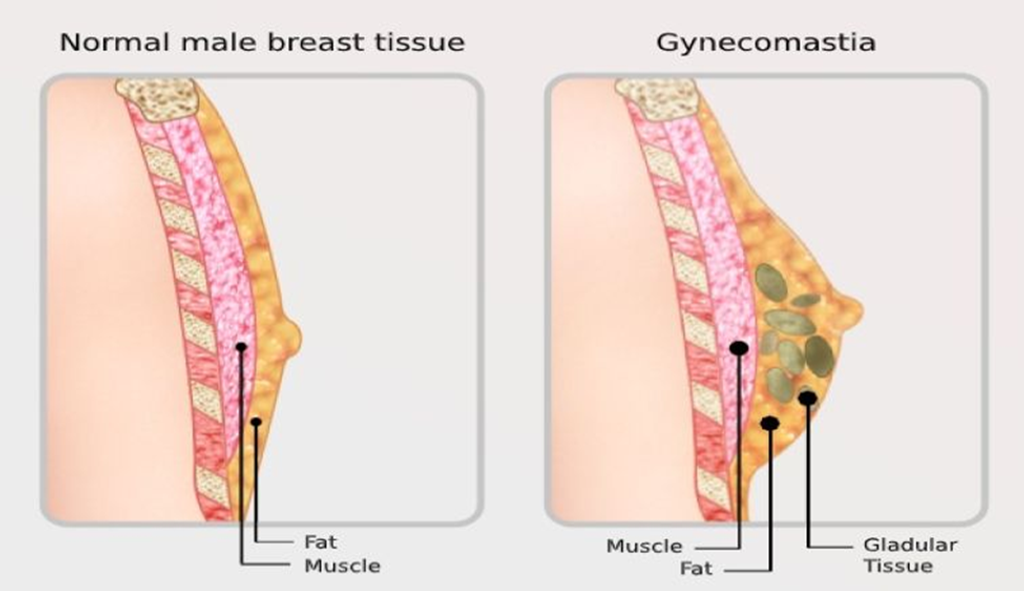The story of Kizi Kamasho, a 53-year-old from Luton, serves as a poignant reminder of the realities faced by those diagnosed with male breast cancer. In 2022, Kizi received the shocking news of his diagnosis, which had already spread to his lungs, bones, and lymph nodes. However, amidst the despair, a ray of hope emerged in the form of a groundbreaking drug—Trastuzumab.
Described by Kizi as “like an oasis in the desert,” Trastuzumab became a beacon of hope in his battle against stage four cancer. This “wonder drug”, specifically targeting the type of cancer he had, marked a turning point in his journey. Through pioneering research and advancements in medical science, Kizi found himself propelled toward a future filled with optimism
Pioneering Research and Promising Treatments
Kizi’s experience underscores the importance of ongoing research and innovation in oncology. The drug he was prescribed, trastuzumab, is just one example of the remarkable progress being made in cancer treatment. By targeting specific cancer subtypes, such as HER2-positive breast cancer, these medications are revolutionizing the way we approach cancer care.
HER2, present in every human cell, regulates growth and cell restoration.
According to the NHS website, Trastuzumab’s effectiveness may vary among individuals, requiring regular check-ups during treatment to ensure its efficacy.
Trastuzumab, prescribed medication, is administered in hospital or clinic settings either intravenously or via subcutaneous injection into the thigh.
Moreover, recent scans showing Kizi’s clearance of the disease highlight the effectiveness of these treatments in combating advanced-stage cancers. As Cancer Research UK reports, Kizi’s journey is a testament to the power of perseverance, medical breakthroughs, and the unwavering commitment of healthcare professionals.

In healthcare, some topics remain largely unspoken, shrouded in misconceptions, and overlooked in medical discourse. Among these are male breast cancer and gynecomastia, conditions that affect a significant portion of the male population yet are often sidelined in discussions. As medical professionals, it’s crucial to shed light on these conditions, their prevalence, and the strides in their treatment.
Understanding Male Breast Cancer and Gynecomastia
Male breast cancer, though less common than its counterpart in women, is a reality that cannot be ignored. According to the American Cancer Society, approximately 2,650 new cases of invasive breast cancer will be diagnosed in men, with an estimated 530 deaths in 2024. While this accounts for only about 1% of all breast cancer cases, the impact on those affected cannot be understated. While this number pales in comparison to female diagnoses, it’s a reminder that breast cancer knows no gender boundaries.

Gynecomastia, on the other hand, is a benign enlargement of male breast tissue. It’s a condition that can affect males of any age and is often a result of hormonal imbalances, medications, or underlying health issues. Though not life-threatening, like breast cancer, gynecomastia can have profound psychological effects on individuals, impacting self-esteem and quality of life.
A Call to Action
As doctors, we must continue to educate ourselves and our patients about the realities of male breast cancer and gynecomastia. By fostering open dialogue, challenging stigmas, and advocating for early detection and treatment, we can make meaningful strides toward improving outcomes and enhancing the quality of life for those affected by these conditions.
Kizi Kamasho’s journey reminds us that amidst the darkness of illness, a glimmer of hope exists—a hope fueled by research, innovation, and the unwavering human spirit. Let us stand together in the fight against male breast cancer and gynecomastia, ensuring that no one faces these challenges alone.
References
- Man treated for breast cancer given ‘wonder drug’ [Internet]. Accessed on June 05, 2024. Available at https://www.bbc.com/news/articles/c0345e15gnmo
- Enlarged Male Breast Tissue (Gynecomastia) [Clevelandclinic]. Accessed on June 05, 2024. Available at https://my.clevelandclinic.org/health/symptoms/16227-enlarged-male-breast-tissue-gynecomastia
About Docquity
If you need more confidence and insights to boost careers in healthcare, expanding the network to other healthcare professionals to practice peer-to-peer learning might be the answer. One way to do it is by joining a social platform for healthcare professionals, such as Docquity.
Docquity is an AI-based state-of-the-art private & secure continual learning network of verified doctors, bringing you real-time knowledge from thousands of doctors worldwide. Today, Docquity has over 400,000 doctors spread across six countries in Asia. Meet experts and trusted peers across Asia where you can safely discuss clinical cases, get up-to-date insights from webinars and research journals, and earn CME/CPD credits through certified courses from Docquity Academy. All with the ease of a mobile app available on Android & iOS platforms!






